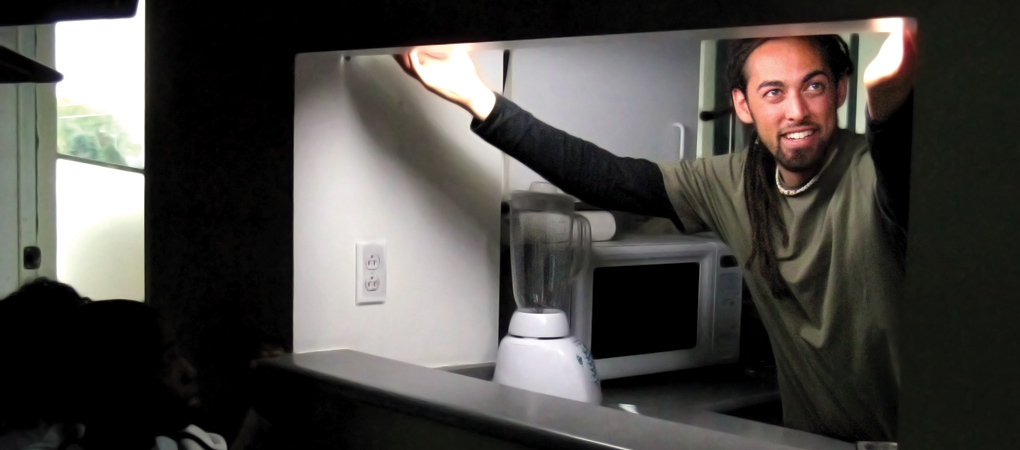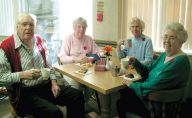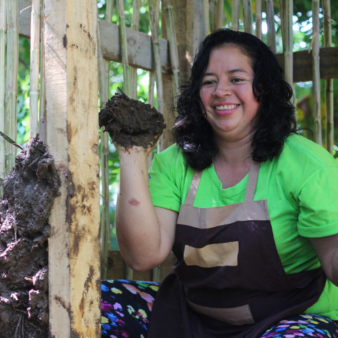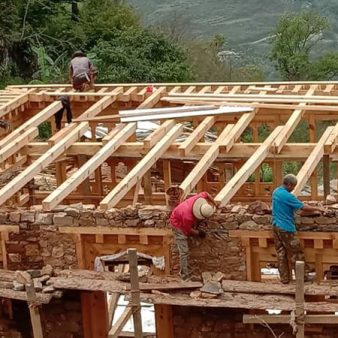The GLOBE Community Champions Program works with social housing providers in the Province of Ontario to educate, engage and support staff and residents in conservation efforts. This initiative trains members of the social housing community on sustainable practices that lead to improved water and energy use and reduced waste. The program uses an integrated approach, linking efficient technologies with preventative maintenance and resident behaviour. To date, over 150 residents and housing staff in 56 communities have been trained as Community Champions, resulting in resource and cost savings and improved engagement in sustainability issues.
Project Description
Aims and Objectives
To reduce the impacts of energy poverty within Ontario’s social housing sector by educating, engaging and supporting staff and residents in conservation activities, facilitating behavioural and attitudinal changes, and supporting the development of healthy, sustainable communities.
Context
Ontario’s social housing providers spend more than $400 million a year on electricity, heating fuel and water and the cost of utilities is likely to continue to increase in the future.
Rising utility costs are a significant concern for housing providers because they divert already scarce funds away from building maintenance and high priority capital projects. Rising costs are also a concern for social housing residents, especially those who pay for their own utilities. Residents in social housing typically lack financial security, and rising utility costs will make them even more economically vulnerable.
Many social housing buildings are poorly built and/or maintained, but even in newer buildings or those retrofitted to high environmental specifications, any technical or mechanical benefits are often negated due to a poor understanding on the part of staff and residents of the impact of their behaviour.
About GLOBE
GLOBE (Green Light on a Better Environment) is a subsidiary of the Social Housing Services Corporation (SHSC), a not-for-profit social enterprise created by the Province of Ontario to deliver programs and services to Ontario’s social housing sector. Established in 2007, GLOBE’s focus is to support Ontario’s social housing sector in their efforts to become more sustainable.
One of GLOBE’s first projects helped over 5,000 social housing units switch over from incandescent to fluorescent light bulbs. Delivered in partnership with Toronto Hydro Electric Systems Limited and the City of Toronto, this project provided housing residents and staff with the training and resources necessary to engage in energy reduction within their community. To support this work, GLOBE also piloted training programs aimed at improving the knowledge of energy conservation measures in housing providers and staff. This training component paved the way for the creation of the Community Champions Program.
Key features
GLOBE’s Community Champions Program works with housing providers to select, train, and support residents and staff to help them best achieve their energy conservation objectives. Community Champions receive training, educational materials and ongoing support from GLOBE staff to equip them to work with members of their community to achieve real improvements in comfort, health and costs. These small, simple behavioural changes can lead to big results, particularly when combined with operational or technological measures.
The role of the Community Champion is to:
- Understand and communicate sustainability basics;
- Identify opportunities and develop strategies for low / no cost conservation measures;
- Develop and deliver plans for staff and resident engagement;
- Monitor results and report back on progress.
Potential Champions are recruited through community advertising as well as by word-of-mouth. Once registered in the program, Community Champions go through a two-day training course which focuses on three major impact areas: energy, water and waste. Training is action-oriented and emphasizes positive change. GLOBE then provides ongoing support to the Community Champions in planning and implementing community events and activities that promote sustainable habits. A range of resource materials are provided to help Champions reach out to their community and solicit support from neighbours and businesses.
The Community Champion Program succeeds in part because of its emphasis on teamwork: each community is encouraged to form a committee made up of staff, residents and other members of the community who together help in the development and delivery of a community conservation plan. To date, over 150 residents and housing staff from 56 different communities have participated in the program, which continues to grow. Future program plans include the development of additional training modules, a ‘Train the Trainer’ approach to facilitate transfer to other cities and provinces, and the leveraging of social media to share best practices and help participating communities stay connected.
Covering costs
The cost to design and develop program materials and deliver the program in the first year, including staff and in-kind resources, was approximately $140,000. Funding came from Toronto Hydro, as well as in-kind support from SHSC.
Going forward, the program will be delivered as part of on-going utility and government incentive programs, and also be offered as a stand-alone product priced at a cost-recovery rate for social housing providers. Possible links with the private sector are currently being investigated with respect to the condo market.
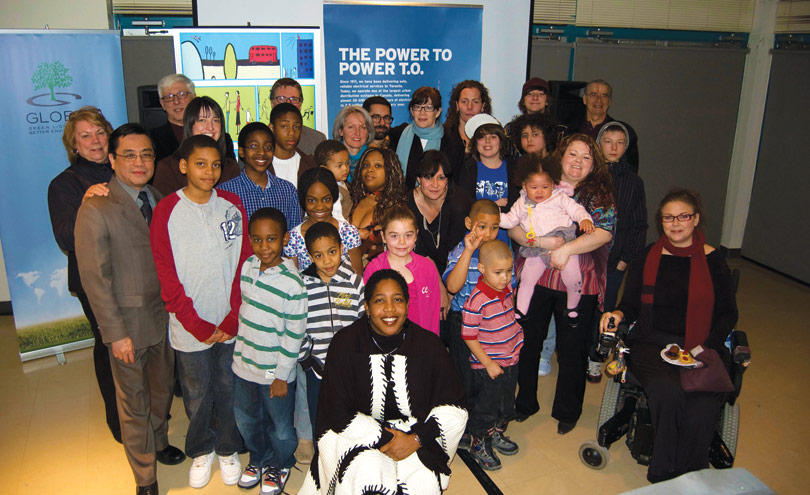
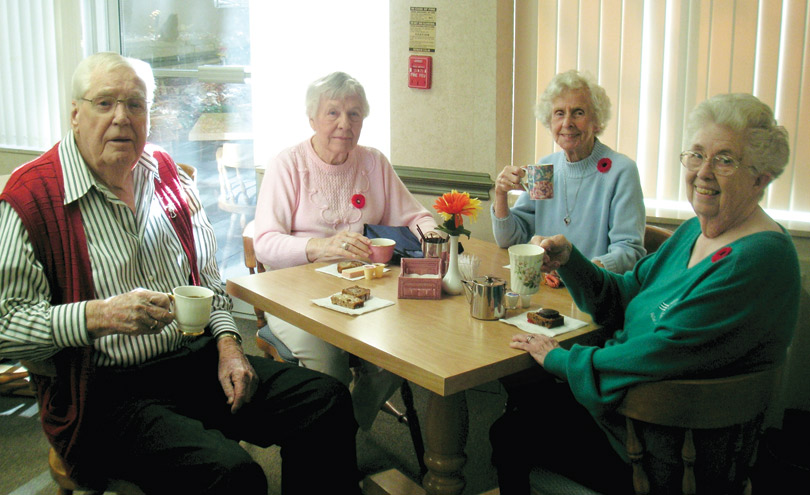
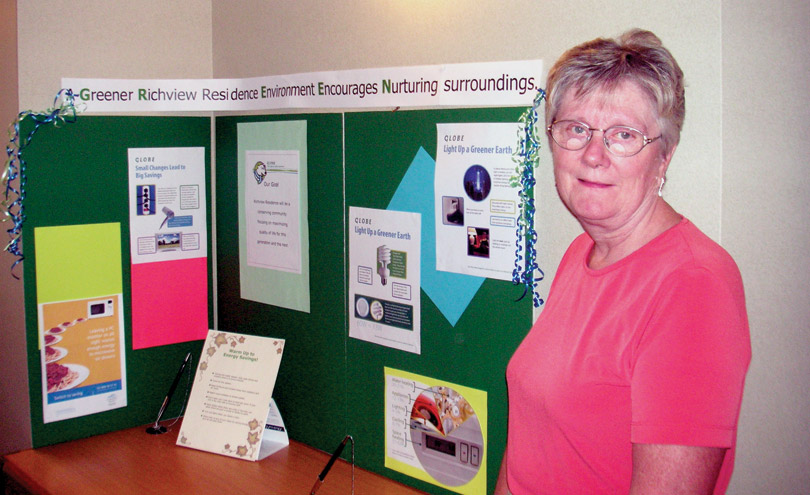
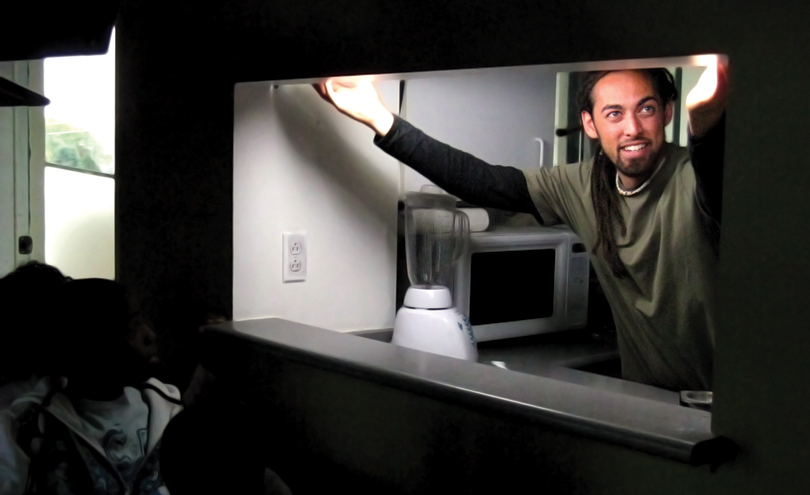
Impact
- The program has led to increased awareness of energy saving and broader sustainability issues by both housing providers and residents. From surveys carried out, it is estimated that at least half of all social housing residents have heard of the program and 41 per cent have changed their behaviour in some way (turning down thermostats, turning lights off, taking short showers rather than baths etc.).
- Cost savings have been achieved for both residents and social housing providers.
- There is growing interest in supporting resident engagement activities, with funding now being made available through utility and government funding streams.
Why is it innovative?
- Community engagement: The program is unique in that it is led by social housing residents who plan, promote and implement their own conservation activities. Most education programs use either outside agencies or consultants who lack insight into the unique needs and priorities of the communities they are meant to work with.
- Focus on behaviour: People and their behaviours are seen as a cornerstone for real, substantial change. Most energy conservation projects in social housing focus solely on implementing new technologies or retrofits. The GLOBE program is innovative because it uses an integrated approach, linking technological upgrades with maintenance and resident behaviour.
- Collaboration: The program brings together social housing residents and staff, whose relationships can sometimes be strained or virtually non-existent, and focuses them on shared goals. This supports the building of communities beyond just conservation programming. The program also makes important linkages with other GLOBE programs such as its REDY program (Reducing Energy Demand with Youth). This green jobs training program connects the dots between energy poverty, housing repairs, youth underemployment and the green economy. Involving the REDY graduates with the Champions through joint programming further reinforces the many community benefits that result from energy conservation.
- Transferability: The design of the program is such that it may be applied in communities around the world. It can deliver energy and water conservation results on its own, or combined with programs that include physical measures.
What is the environmental impact?
The Community Champions Program helps communities make a measurable difference in resource use by promoting understanding of the need to conserve water and energy, and focusing on end-use rather than on building design or construction. International studies show energy savings of 5.1 to 19 per cent can be made either through education alone or through education matched with low-cost measures. Results for the Community Champions Program have been consistent with these studies. For example, the Hellenic Home for the Aged in Toronto reported an 8 per cent reduction in kWh and 7 per cent reduction in water consumption after the Community Champions Program was introduced. Similar savings are being achieved across other developments.
GLOBE and SHSC offer products/services that complement and support the energy saving goals of the Community Champions Program. For example, GLOBE offers separate training to housing provider staff on implementing and understanding energy saving measures (e.g. programmable thermostats, weather proofing). It also recently launched an interactive Sustainability Toolbox for housing providers, which focuses on no-cost and low-cost solutions that assist providers in engaging staff and residents in conservation activities. The REDY program will also help ensure that the next generation of housing trades are trained on the importance of conservation-based retrofits and will be available to implement the Community Champion initiatives.
SHSC also offers bulk-buy programs for ENERGY STAR kitchen appliances, sliding doors and windows, and low-flow toilets which enable housing providers to access efficient products at reasonable prices.
Housing staff and residents can apply their knowledge of sustainability well beyond their roles within social housing. For example, they can use this knowledge to inform their mode of travel and/or their consumer choices.
The support provided by the Community Champions Program encourages housing providers to take up incentive funding to carry out capital improvements and improve efficiency in older properties.
Is it financially sustainable?
- Funding is derived from a range of sources including public utility companies and governments (incentive funding for capital improvements).
- A range of social housing providers are using the program on a cost-recovery basis.
- Community Champions develop skills that can assist them in the job market. In addition to gaining conservation expertise, Champions develop skills and experience in event planning, program administration, public speaking, communications and marketing, and project management.
- Residents who pay directly for their utilities typically achieve cost savings of 8 per cent.
- Residents whose utility costs are included in their rent still benefit financially from the program because savings are reinvested in the community for building improvements.
What is the social impact?
The program involves both those who reside in social housing, as well as those who are officially responsible for maintaining them and who work with residents on a daily basis. The Community Champions Program helps these two groups focus on achieving common goals. It also helps forge relationships between different groups within the community, including local businesses, social and cultural organizations, and public institutions.
Development of a community action plan is led by community members, who also actively plan, promote and implement it.
In addition to learning about sustainability, Community Champions also develop skills and experience in event planning, program administration, public speaking, communications and marketing and project management,
Residents gain health and comfort benefits as a result of more efficient, sustainable buildings (e.g. units are less draughty, have fewer mould issues).
All program materials are designed as templates that can be manipulated to accommodate other languages, cultural differences and specific community concerns. Particular efforts are made to ensure that excluded groups are engaged in the program.
By taking on a leadership role in the community, resident volunteers benefit from personal development and recognition in the social housing sector.
Barriers
Limited understanding by funders of the benefits of energy conservation education and training.
It took longer than expected to develop engagement materials that were appropriate in terms of accessibility and relevance to a wide audience, and delivery of training is itself time and resource intensive.
Although the individuals and communities have welcomed the program, the social housing sector as a whole has limited staff and resources, making it sometimes difficult to reach the appropriate people in a timely manner.
Other barriers include language, literacy, distrust of ‘outsiders’, and cultural differences. Some specific community groups have been difficult to reach and require higher levels of support to ensure they are able to contribute.
Lessons Learned
- Peer-led education is not only a low-cost solution, but also an effective one.
- The need to set clear and realistic goals is vital, because behavioural and attitudinal shifts and results are not immediately apparent. It is important to have realistic expectations about what can be accomplished and when.
- It is important to celebrate and build on successes.
- Program participants need to be able to voice concerns, ask questions, get clarification and encouragement or they quickly lose momentum.
- It is vital to collect and share stories and practices, so that Champions can build on each other’s experiences.
- Flexibility is important when working with volunteers. Program planning and implementation needs to fit within their lives and their personal schedules and priorities.
- It is important to be attentive to the individuals involved. If they have language barriers, physical accessibility issues, community concerns such as personal safety, these need to be addressed in a positive way.
- Relationship building and trust is necessary to the long-term sustainability of community conservation projects.
Evaluation
Monitoring impact is a key role of the Community Champions and energy and water consumption is measured in individual housing complexes. Community Champions also carry out surveys as part of their work, identifying changes in behaviour through a set of standardized questions.
Transfer
Almost 150 individuals in 56 communities have been trained to date. The program has expanded beyond Toronto to include communities across Ontario.
With a growing, province-wide network of Champions, GLOBE now holds networking meetings so that they can continue to share best practices and work together in improving the sustainability of social housing in Ontario.
GLOBE is in discussions with jurisdictions that are interested in adopting the program to use in their own circumstances, including the provinces of British Columbia and Newfoundland in Canada, and a number of utility providers in Ontario.
To ensure the transferability of the program, GLOBE is in the process of developing a package of tools for delivering Community Champions in other jurisdictions, which can then be customized based on local needs and priorities.
GLOBE is undertaking international outreach, having presented the Community Champions Program to groups in the Netherlands, Australia, United Kingdom, Germany and the United States.
Partnership
Local government, State/Regional government, Private sector, NGO

